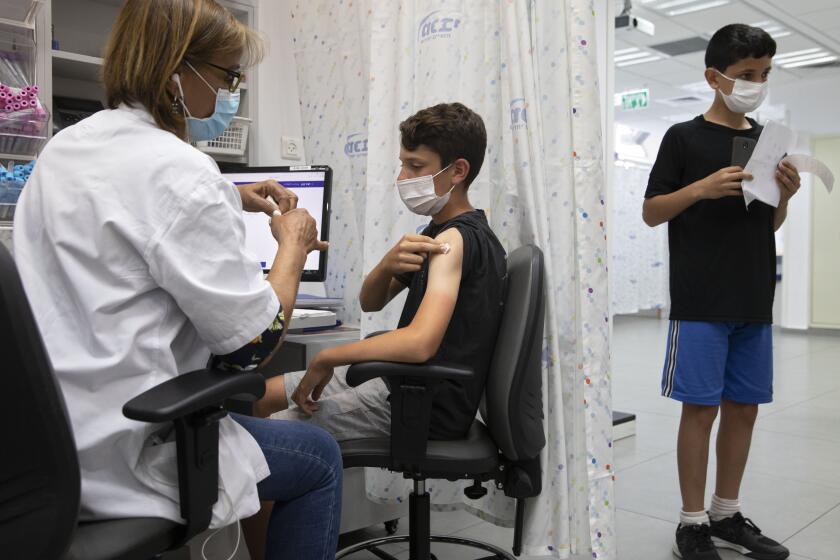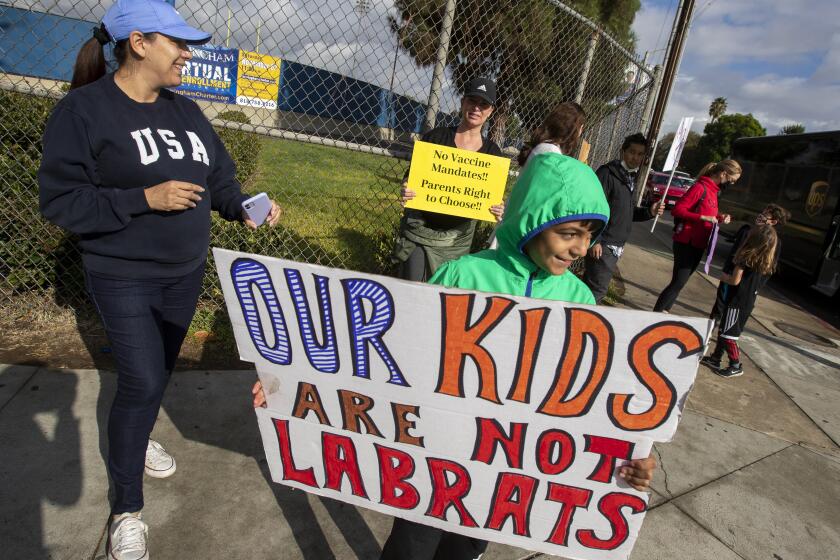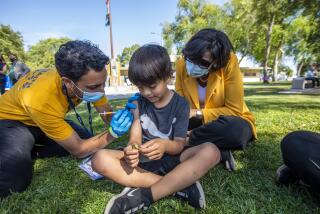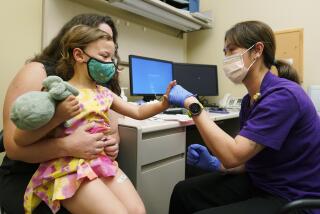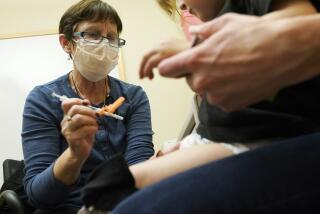Here’s what you need to know about the White House plan to vaccinate children
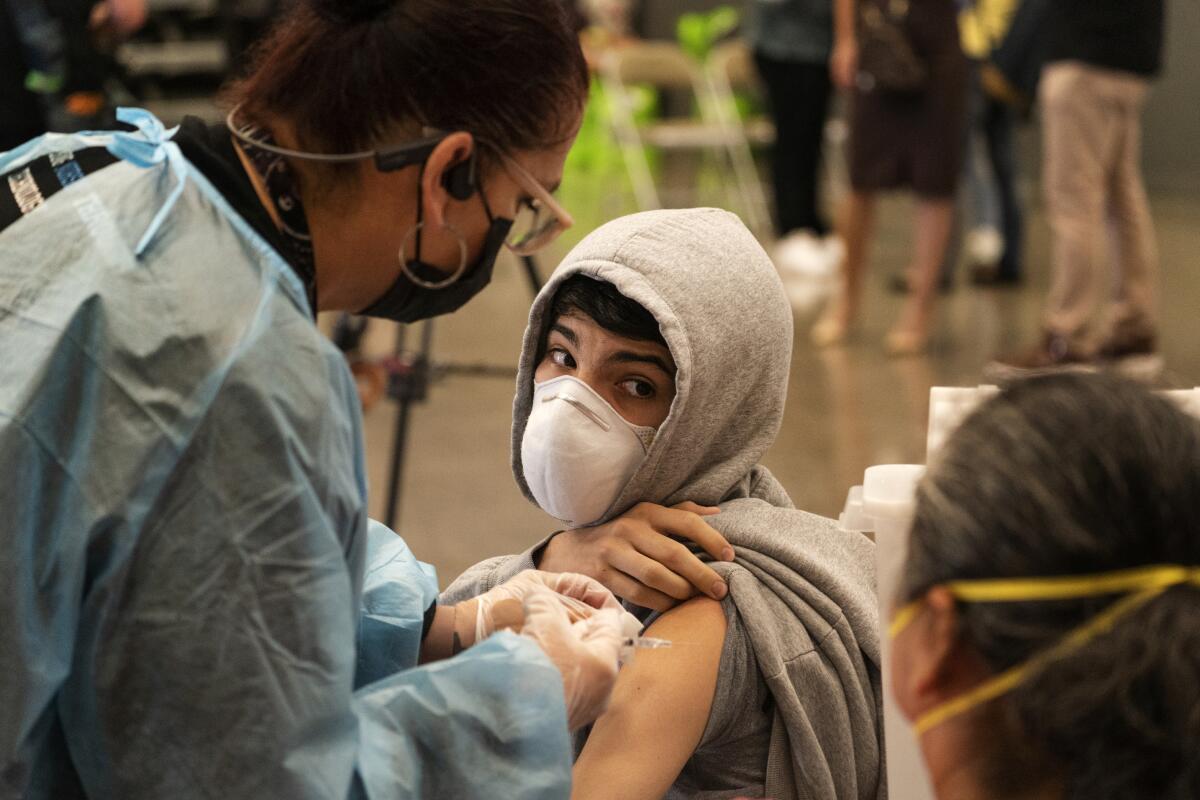
- Share via
WASHINGTON — The Biden administration on Wednesday announced plans to get young children vaccinated against COVID-19, a move health officials say will help curb the pandemic, save lives and stabilize the U.S. economy.
“We’re completing the operational planning to ensure vaccinations for kids ages 5 through 11 are available, easy and convenient,” Jeff Zients, a White House COVID-19 coordinator, said during a Wednesday news conference.
Children ages 5 to 11 should soon be able to get a COVID-19 shot at their pediatrician’s office, local pharmacy and potentially even their school.
Here’s what you need to know about youth vaccinations:
When does the vaccine become available?
As early as next month.
Federal regulators are expected to determine the benefits of vaccinating young children late this month, and within weeks grant emergency-use authorization for child vaccines. Doses, which will be about a third of the size given to people age 12 and older, would then be shipped to pharmacies and healthcare providers. White House officials said many children could be fully vaccinated by Christmas.
How do we know it’s safe for children?
Pfizer said it studied COVID-19 inoculation in over 2,000 young children and found they developed antibody levels similar to teens and young adults. They also suffered similar or fewer temporary side effects that included fever, achiness and sore arms near injection sites.
Where can children get the vaccine?
Children will be able to get their shots at many of the same places as adults, including retail pharmacies. They can also get vaccinated by their pediatrician: More than 25,000 pediatricians and primary care providers have agreed to vaccinate children, according to the White House. The Federal Emergency Management Agency will also sponsor hundreds of local inoculation clinics to support operations and outreach.
My kids are younger than 5. When can they get vaccinated?
That is unclear. Pfizer expects to finish collecting data on younger children in clinical trials in coming months, the company said.
“Pending the safety and immunogenicity data and discussions with regulators, we would submit for Emergency Use Authorization as soon as possible,” Kit Longley, a Pfizer spokesperson, told The Times.
Why do children need to get the shots?
Health experts say the vaccine will protect children from getting sick with COVID-19, developing serious side effects and spreading the virus.
The emergence of the more contagious Delta variant earlier this year caused a spike in cases among kids. Health experts have said this contributed to an uptick in unnecessary hospitalizations and deaths among unvaccinated Americans. Currently, about 77% of the U.S. population over age 12 is at least partially vaccinated and nearly 67% is fully vaccinated, according to federal statistics.
Severe illness from COVID among young children is uncommon, though serious side effects can occur. More than 6 million children have tested positive for COVID-19 since spring 2020, according to the American Academy of Pediatrics. Fewer than 400 children aged 0-11 have died from COVID-19, according to federal statistics.
In some jurisdictions, they might not have a choice in getting inoculated. California earlier this month became the first state to mandate a COVID-19 vaccine for all students attending in-person learning in public and private schools.
Pupils in seventh through 12th grades will be required to get their shots not long after the Food and Drug Administration’s grants full approval of vaccinations of those ages 12-16. The FDA has already given full approval to the Pfizer vaccine for people older than 16.
Gov. Gavin Newsom’s office said it would not enforce the vaccine requirement for students 16 and older until full approval was granted to all students ages 12 and older.
When the federal regulators grant full approval for children ages 5-15, students in kindergarten through sixth grade will also be required to get fully vaccinated.
On Monday, some parents kept their children home from school to protest the pending statewide student vaccination mandate.

